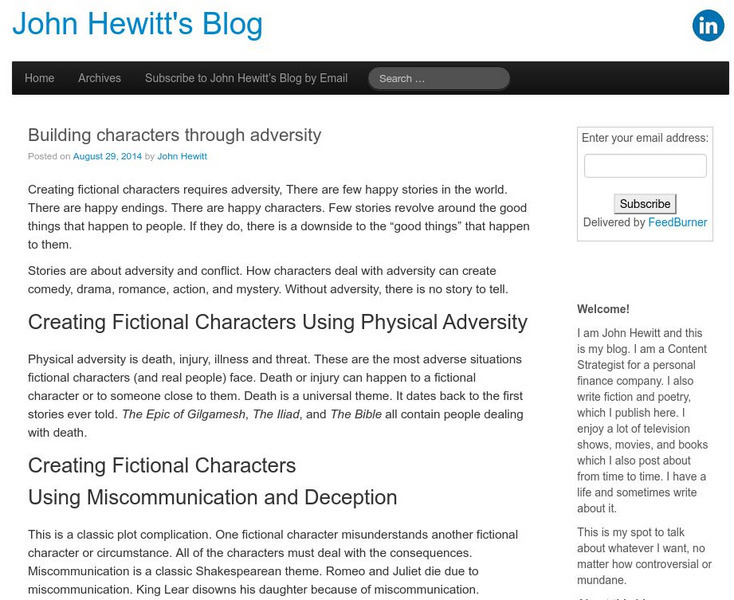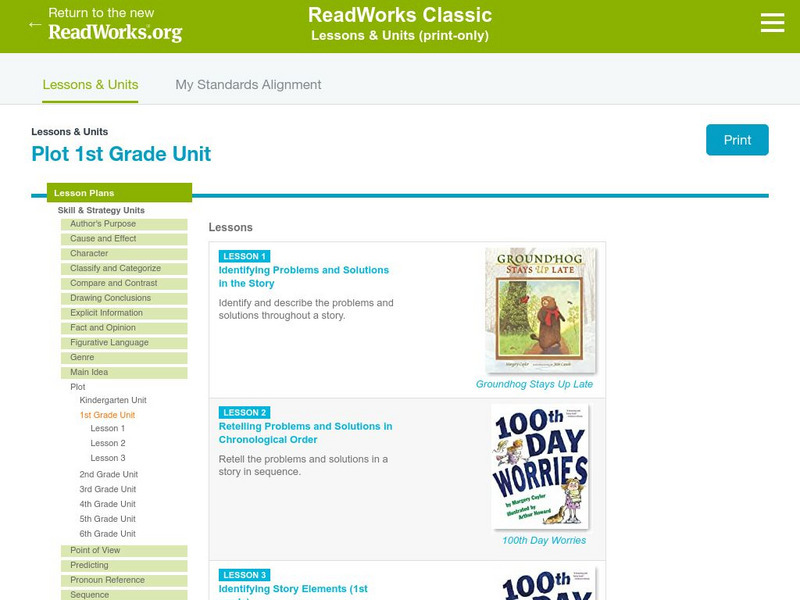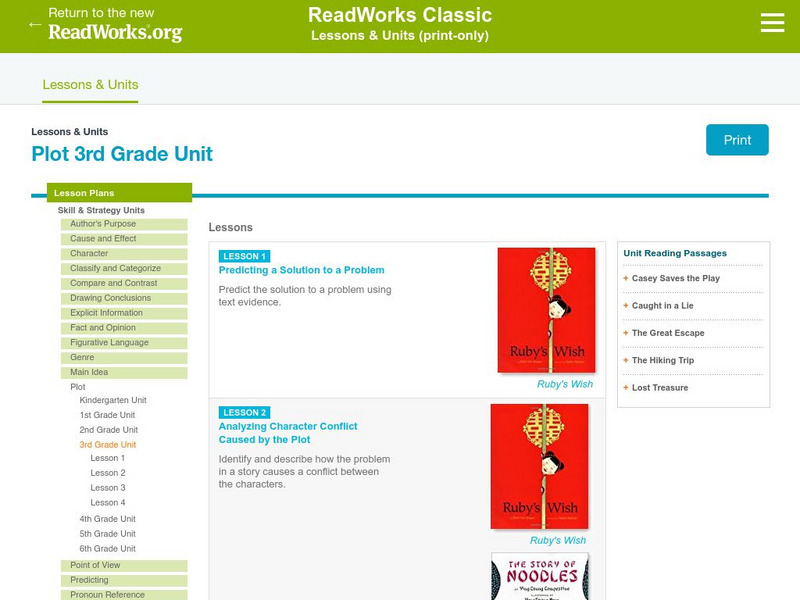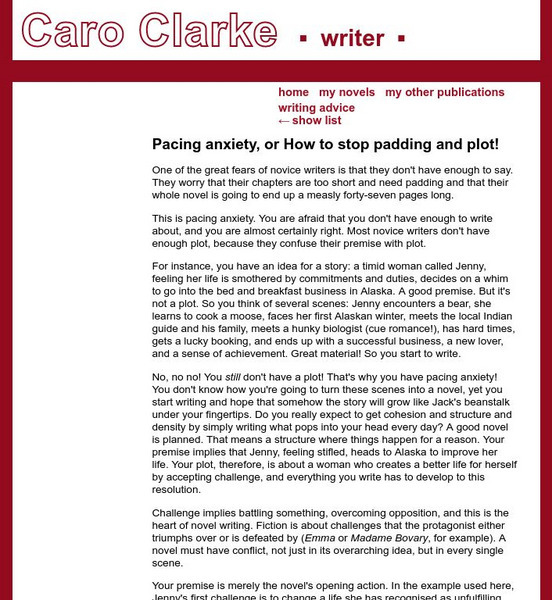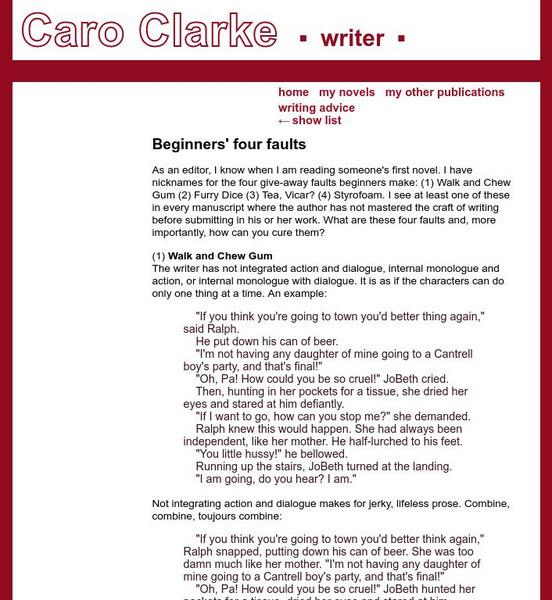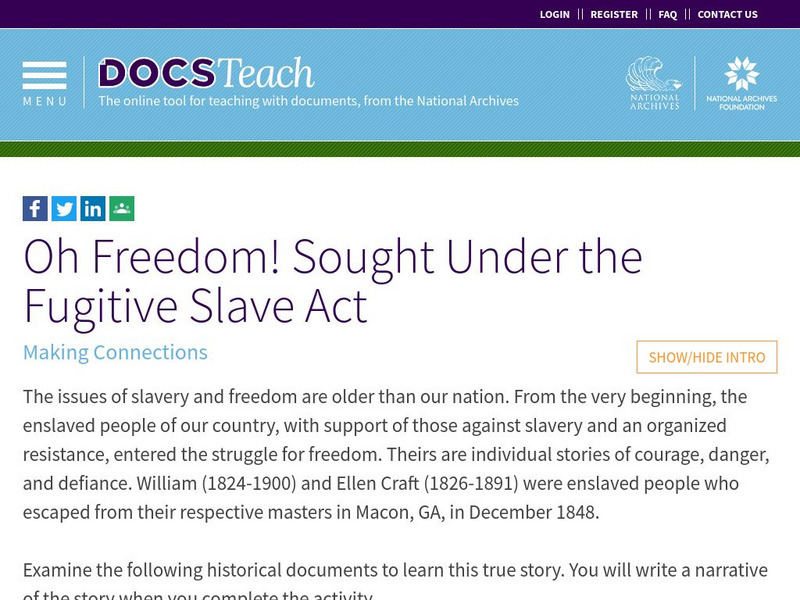Read Works
Read Works: Hide and Seek
[Free Registration/Login Required] A literary text about a girl named Tracy who played hide and seek with the cousins she was babysitting. A question sheet is available to help students build skills in reading comprehension.
E Reading Worksheets
E Reading Worksheets: Indirect Characterizations Worksheet
In this learning module, students will practice analyzing indirect characterizations. A worksheet is provided to reinforce the concept. This module is designed to support Tier I, Tier II, and Tier III students.
Other
Literature Unit: "A Day No Pigs Would Die"
This site features questions for each of the chapters in Robert Newton Peck's "A Day No Pigs Would Die."
Read Works
Read Works: My Favorite Alley Cat
[Free Registration/Login Required] Requires free membership. This passage is a stand-alone curricular piece that reinforces essential reading skills and strategies and establishes scaffolding for vocabulary learning. It contains...
Ted Nellen
Cyber English (By Ted Nellen): Characterization
This is a glossary entry for the term "Characterization" including a definition and the characteristics to be developed: Character's appearance, actions, thoughts, voice, and reaction from others.
Georgia Department of Education
Ga Virtual Learning: Fable Chart [Pdf]
This is a PDF Fable Chart designed for students to complete as they read a fable; it includes the title and author, the animal character, human characteristics, the individual elements of a short story, and the moral or lesson.
Other
America Dept. Of State: Outline of American Literature [Pdf]
This online book presents an overview of American literature chronologically. Eras and movements are explained and biographies of significant authors are provided. This is a good way to understand the background and influences of...
PBS
Pbs Teachers: The Hound of the Baskervilles
View, read and discuss Conan Doyle's tale, "The Hound of Baskersvilles," and compare and contrast the story with the film. Explore the genres and elements of mystery and suspense that are present, and analyze characters, especially...
ReadWriteThink
Read Write Think: Fairy Tales From Life
A guideline for helping students to write their own fairy tales. This is a fun activity that will help students to analyze a literary style and follow a pattern.
Other
Building Characters With Adversity
Extensive and very interesting article advising the reader on how to develop characters through adversity.
Read Works
Read Works: Plot 1st Grade Unit
[Free Registration/Login Required] A series of three lesson plans designed to teach students to identify problems and solutions in fiction text and to retell a story's problem and solution in sequence. Students learn to identify the plot...
Writing Fix
Writing Fix: Fairy Tales in New Settings
After reading Bubba, The Cowboy Prince by Helen Ketteman, the writer will first choose a fairy tale that he/she is very familiar with. Next, he/she will choose a completely different setting (time and place) for their story. The writer...
Read Works
Read Works: Plot 3rd Grade Unit
[Free Registration/Login Required] A series of four lesson plans designed to teach students to predict problems and solutions in fiction text and to identify the relationship between problems and character conflicts within a story....
Caro Clarke
Caro Clarke: Pacing Anxiety, or How to Stop Padding and Plot!
This is the seventh installment of a series giving advice to the author who is new to writing novels. This article focuses on how to take your characters and use them and their conflicts to develop the plot of your story. W.9-10.3b...
ReadWriteThink
Read Write Think: Using Picture Books to Teach Plot Development and Confict Res.
Students read picture books to explore the concepts of plot development and conflict resolution. They first learn about the connections between reading and writing, and then revise their own writing. CCSS.ELA-Literacy.CCRA.R.4
Caro Clarke
Not Stopping the Reader: How to Avoid Stumbling Blocks
This is the eighth article in a series that focuses on helping the new novel author. This article looks at how the author can avoid creating stumbling blocks that disrupt the flow of the novel.
Caro Clarke
Explaining Too Much: Why More Is Less
This is the eleventh article in a series that is designed to help the new novel author. This article focuses on how to eliminate needless information in your novel. The key is to not explain too much about the action.
Caro Clarke
Caro Clarke: Writing Advice: Beginner's Four Faults
This site is a personal site from Caro Clarke. The third installment in this series looks at the four major mistakes made by beginning authors. The main idea of this article is that the author needs to be able to combine dialogue with...
US National Archives
Docsteach: Oh Freedom! Sought Under the Fugitive Slave Act
This activity includes primary sources from the official records of the U.S. District Court at Boston that tell the story of William and Ellen Craft, a young couple from Macon, GA, who escaped to freedom in Boston in 1848. Students will...
National Endowment for the Humanities
Neh: Edsit Ement: Cinderella Folk Tales (Lesson Plans)
These five activities allow students to explore the various Cinderella folktales, while comparing and contrasting the characters. They provide lesson extensions, links to charts, discussion questions and the like.


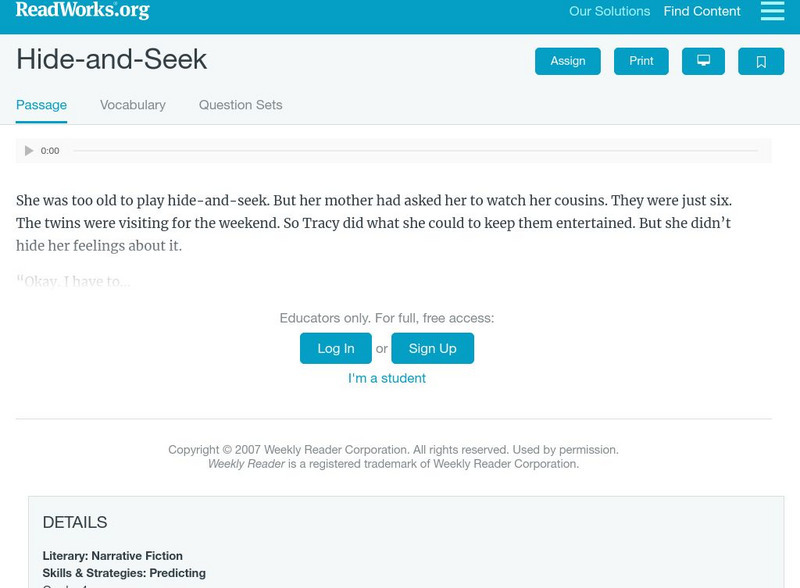




![America Dept. Of State: Outline of American Literature [Pdf] eBook America Dept. Of State: Outline of American Literature [Pdf] eBook](http://content.lessonplanet.com/resources/thumbnails/410155/large/bwluav9tywdpy2symdiwmduymc0yotc0ny0xzhf5cgiwlmpwzw.jpg?1589985629)


